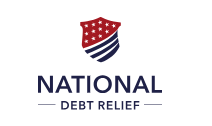10 Ways to Avoid Falling Back into Debt After Paying It Off

Becoming debt-free is an empowering achievement. However, many individuals face the daunting possibility of slipping back into debt after successfully paying it off. The cycle of debt can be persistent—but it’s entirely avoidable. To maintain your hard-earned financial freedom, it’s essential to adopt proactive strategies.
Below are 10 proven ways to prevent yourself from falling back into debt after you’ve successfully become debt-free.
1. Stick to a Budget
The cornerstone of staying debt-free is creating and adhering to a realistic budget. A budget clarifies your income and expenses, helping you spend intentionally and avoid overspending. Regularly reviewing your budget ensures you remain financially disciplined and aware of your spending patterns.
2. Build an Emergency Fund Immediately
One of the primary reasons people slip back into debt is unexpected expenses. Create an emergency fund as soon as you’re debt-free. Aim initially for at least $1,000, then work toward saving three to six months’ worth of expenses. An emergency fund protects your finances and helps you avoid relying on credit cards in unforeseen circumstances.
3. Avoid Impulse Purchases
Impulse spending significantly contributes to accumulating debt. Adopt strategies to minimize spontaneous purchases, such as the “24-hour rule,” which involves waiting one full day before buying something unplanned. Practicing mindful spending reduces unnecessary debt accumulation and supports your long-term financial stability.
4. Continue Monitoring Your Credit
Regularly monitoring your credit score and credit reports is essential, even after becoming debt-free. Maintaining a strong credit profile ensures favorable interest rates if future borrowing becomes necessary, such as a mortgage or car loan.
If inaccuracies or unexpected negative marks appear on your credit report, consider professional help from reputable services like Credit Repair. Addressing credit issues quickly protects your financial standing and prevents future debt challenges.
5. Limit Credit Card Use and Pay Balances in Full
Using credit cards excessively can quickly reintroduce debt. Limit credit card use to manageable expenses that you can pay off in full each month. Paying balances monthly prevents interest accumulation, keeping your debt-free status intact.
6. Increase Your Savings Goals
Set new financial goals after paying off debt, such as saving for retirement, homeownership, or major life events. Redirect funds previously allocated to debt repayment into these savings objectives. Increasing your savings prevents excess spending and provides financial security, making it less likely you’ll return to debt.
7. Seek Professional Advice for Complex Debt Issues
Complex financial obligations, such as IRS tax debts, can unexpectedly push you back into debt. If you encounter complicated financial obligations, don’t hesitate to seek professional assistance from experts like Tax Debt. Specialized debt relief professionals can proactively help you resolve these issues before they escalate.
8. Live Below Your Means
Committing to a lifestyle that costs less than your income is essential for avoiding future debt. Make intentional choices—like downsizing, cutting subscriptions, or reducing entertainment costs—to ensure you’re consistently spending less than you earn. This approach provides financial flexibility and safeguards against future debt accumulation.
9. Educate Yourself Continuously About Finances
Financial education strengthens your ability to remain debt-free. Regularly educate yourself through personal finance blogs, books, podcasts, or workshops. Continual learning helps you recognize and avoid common financial pitfalls, making long-term debt avoidance much easier.
Additionally, consulting professionals such as National Debt Relief for periodic financial advice can further reinforce your debt-free status, offering strategies tailored specifically to your financial situation.
10. Celebrate Milestones Responsibly
Successfully becoming debt-free deserves celebration—but do so responsibly. Avoid extravagant purchases or lifestyle inflation as a reward. Instead, opt for affordable celebrations or set meaningful, non-financial rewards that won’t put you back into debt.
Maintain Your Debt-Free Status Permanently
Remaining debt-free after paying off debt requires proactive effort, financial discipline, and intentional planning. By consistently budgeting, building emergency savings, controlling impulse spending, monitoring credit, addressing complex debts with Tax Debt, and maintaining a healthy credit profile through services like Credit Repair, you significantly reduce your chances of ever returning to debt.
Remember, financial freedom is not merely a goal but an ongoing commitment. Protect your financial health, continue making informed choices, and enjoy lasting freedom from debt.
Explore Our Categories

Credit Cards

Debt

Loans

Insurance

Retirement

Home Buying

Investing

Taxes
Free Yourself From Debt

National Debt Relief
✅ Reduce Your Debt – Pay Less Than You Owe!
✅ One Simple Monthly Payment – No More Juggling Bills.
✅ Get Relief From Credit Cards, Medical Bills & More
Ranked #1

